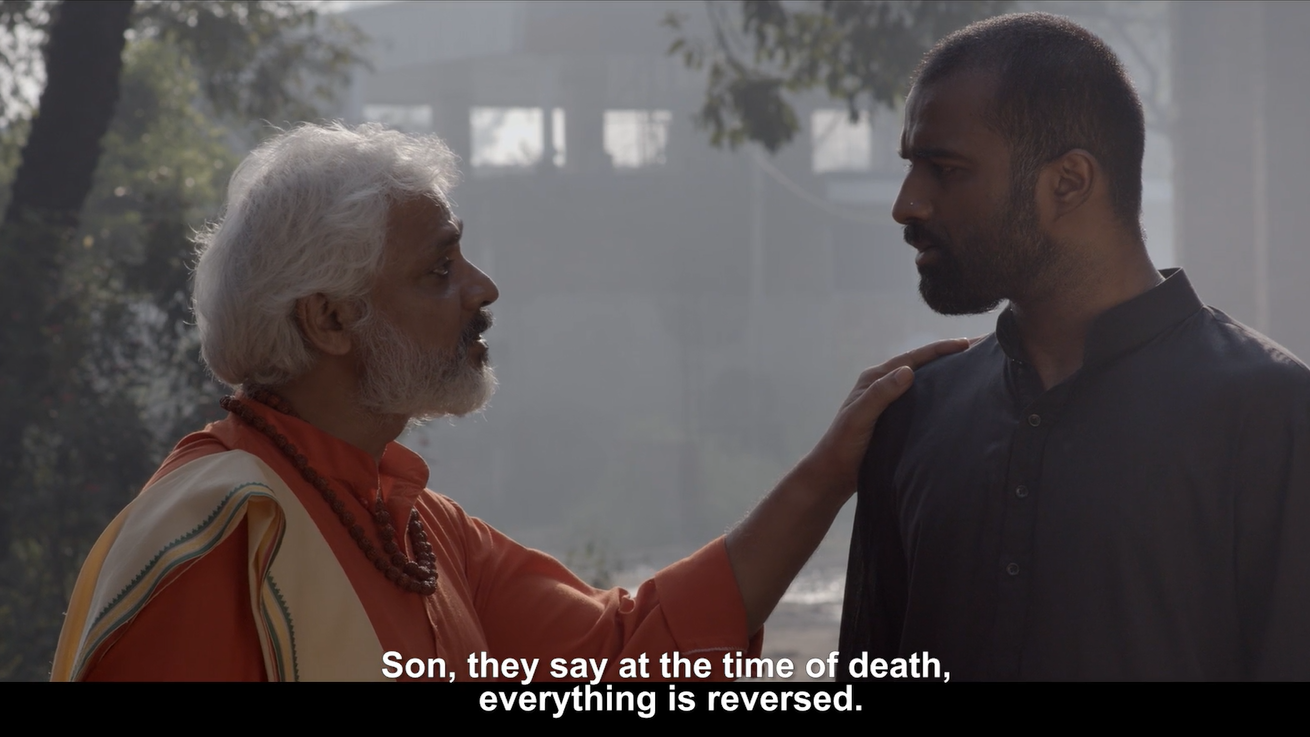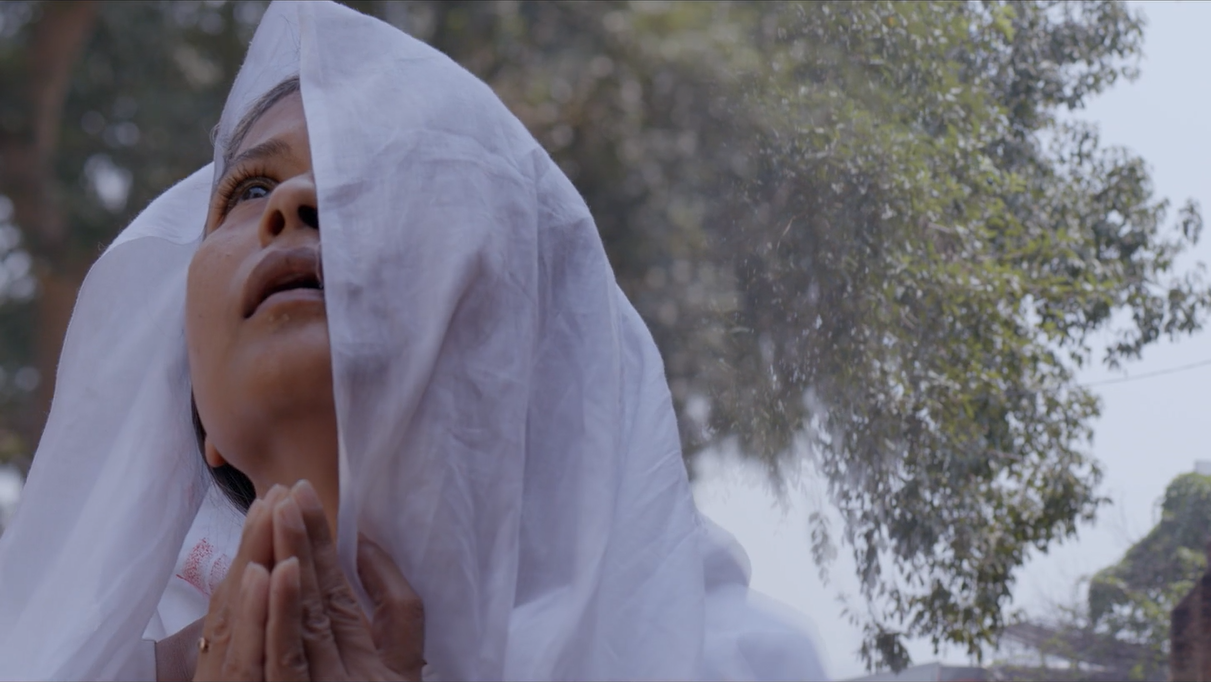 KRIYA (2020)
KRIYA (2020)
Starring: Avantika Akerkar, M.D. Asif, Kishan Bahurupiya, Kanak Bhardwaj, Sudhanva Deshpande, Noble Luke, Anuradha Majumder, Navjot Randhawa
Director: Sidharth Srinivasan
Writers: Sidharth Srinivasan (dialogue), Sidharth Srinivasan (story and screenplay)
“This has been going on for generations”
Every year I scan film festival programs to get a taste of upcoming, interesting films. Thanks to DIS/MEMBER, this year, I was able to virtually attend the prestigious Fantasia International Film Festival, the source of many favorite titles, to review a couple films. While (too) many films piqued my interests, I had to settle for only two. My second Fantasia fest film is Kriya (2020), a bizarre body-switching, reincarnation story set in modern India.
In the press kit, writer and director Sidharth Srinivasan calls Kriya a confrontational film that is “a reinvention of the social drama, a twisted genre-inflected tale which sets out to subvert the sanctity of the Indian family and Hindu ritual tradition, exposing its inherent patriarchy and debasement of women.” The film begins with an extended sequence in a nightclub where the flashing blue and red lights bathe everything in a mesmerizing glow as Neel, the DJ (Noble Luke), and lovely Sitara (Navjot Randhawa) lock eyes. Soon Neel follows her out of the club, and they go to her family’s estate in the country. Seemingly a coincidence, their arrival coincides with her father’s, Kamalkant Kumar (M.D. Asif) dying moments.

Since there is no male heir to be chief mourner, Sitara begs Neel to stand-in as chief mourner. She warns him that her life may be in danger if he doesn’t and promises him a night of sex if he does. Of course, this is a horror film, so no-one accepts a proposition like that without there being unsaid, ghastly consequences ahead. In Neel’s case, he finds he has stumbled into a backwards world of religion, superstition, and black magic. Like the colored lights that dazzled in the nightclub forced the audience’s focus on Neel and Sitara, her pleas likewise entrance Neel into ignoring the signs that this is not going to be a normal funeral service.
Srinivasan uses Neel’s role as the proxy eldest son to draw attention to the toxic nature of India’s patriarchal mores and the national religion of Hinduism’s debasing attitudes towards women, indicting both genders as being complicit in the stifling and cruel dictates. For those not familiar with India’s gender-politics and Hinduism’s extreme patriarchal tenets, Srinivasan offers several brief lessons to provide a primer. Early on, Magdali (Anuradha Majumder), the household servant, explains to Neel that his role is to be the man they can trust and who will support them. Later, Sitara reminds her mother, Tara Devi (Avantika Akerkar), that without a father, husband, or son, Indian women are nothing. That she does this to encourage her mother to perform sati, a widow’s duty to ascend their husband’s funeral pyre, is chilling.

Kriya goes far beyond the story of a grief-stricken household of women worried about their future in the masculine dominated world of modern India. Before the funeral pyre is lit, Neel discovers Sitiara’s family is afflicted with a multigenerational curse. As he draws further into the family’s attempt to break free, the audience realizes this path is rife with murder, cannibalism, and incest. Neel is also revealed to have his own spiritual maise – the ghost of his own father who abandoned him before committing suicide is pursuing him. These elements and more unfold before the viewer under the dazzling lights of a nightclub. It entrances Neel and the audience and blurring the line between reality and hallucination.
The movie is a deep and disturbing experience that codes many real-life traumas as supernatural horror. At times this makes the story almost too complicated. But the final payoff, when everything becomes clear (sort of), is worth it. Shot with a modest budget and tight schedule, Kriya never loses its nimble pacing and rapid-fire presentation. The small cast gives outstanding performances. Especially Navjot Randhawa, who deserves a nomination for a Samuel Jackson “Got-Damn!” award for emphatic profanity.
Deeply steeped in arcane religious traditions and superstition, Kriya entices the viewer to enter a strange and frightening world where East is West, North is South, water is blood, and the past and present collide in a blood-soaked orgy of terror.
Watch the trailer here.



[…] 2) Kriya (2019) – First Time Watch! My second Fantasia fest film was Kriya (2020), a bizarre body-switching, reincarnation story set in modern India. Full review here. […]